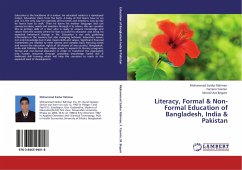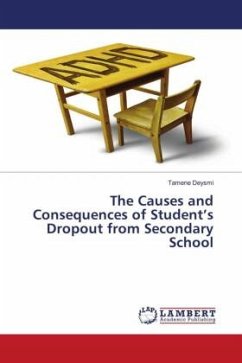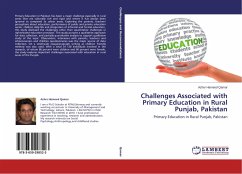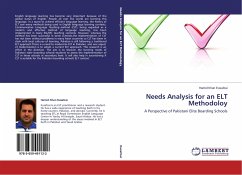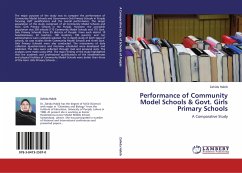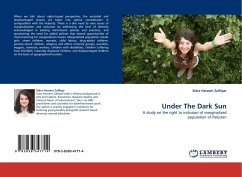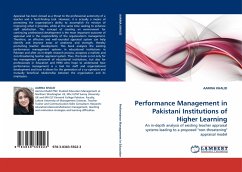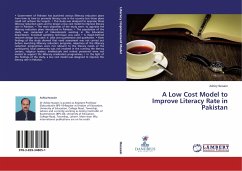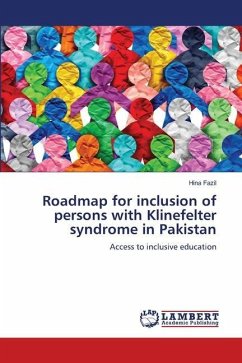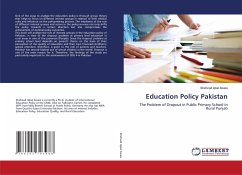
Education Policy Pakistan
The Problem of Dropout in Public Primary School in Rural Punjab
Versandkostenfrei!
Versandfertig in 6-10 Tagen
36,99 €
inkl. MwSt.

PAYBACK Punkte
18 °P sammeln!
One of the ways to analyze the education policy is through group theory that helps to focus on different interest groups in relation to their relative roles and influence on the policymaking process. The imbalance of the role of different interest groups and actors in the policy process not only shifts the policy towards a certain direction but also compromises the achievement of optimal policy outcomes. This book will analyze the role of interest groups in the education policy of Pakistan, in view of the dropout problem at primary level education in rural areas in one of the provinces (Punjab...
One of the ways to analyze the education policy is through group theory that helps to focus on different interest groups in relation to their relative roles and influence on the policymaking process. The imbalance of the role of different interest groups and actors in the policy process not only shifts the policy towards a certain direction but also compromises the achievement of optimal policy outcomes. This book will analyze the role of interest groups in the education policy of Pakistan, in view of the dropout problem at primary level education in rural areas in one of the provinces (Punjab). Since the dropout problem at primary school level depends on parent's choice on the basis of their perception of the quality of education and their own financial conditions; special attention, therefore, is given to the role of parents and teachers. Pakistan has second-highest out of school children in the world. Dropout is one of the main reason for it. Therefore, the findings of the study are particularly important to the achievement of SDG 4 in Pakistan.



